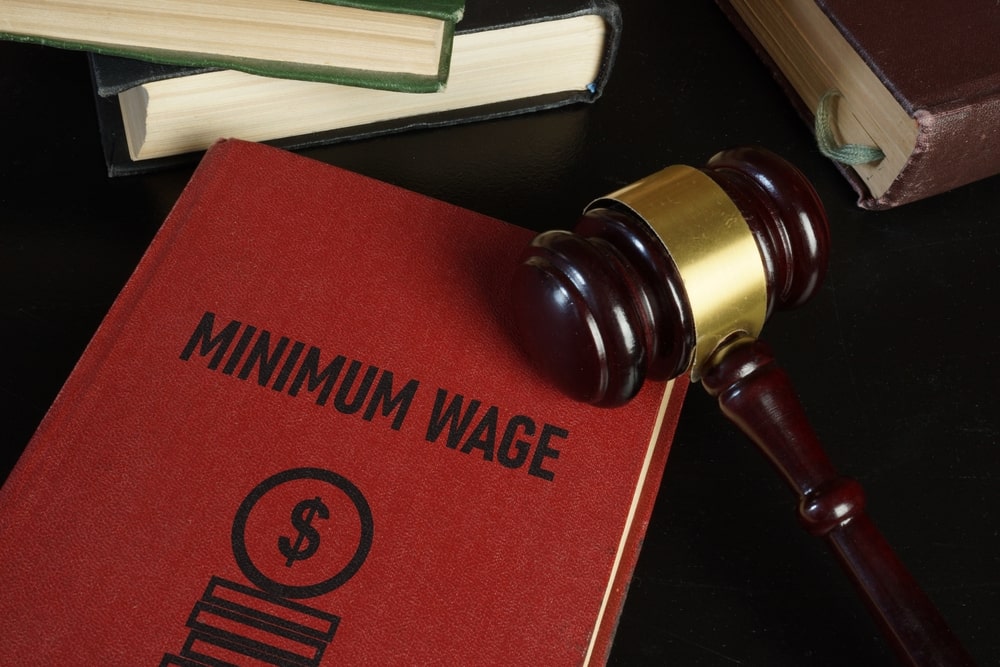The legal side of business can prove complex. One minute, you have a smooth week or quarter. The next, you hit the legal equivalent of a pothole and one of your tires blows out. Employment requirements can create deep potholes – ones you might easily see as you steer your company down the road. In this article, we at Hoegen & Associates, P.C., in Wilkes-Barre, PA, delve into the intricacies of a key area affecting Pennsylvania business owners: commonwealth minimum wage law. We will highlight important considerations for employers and shed light on common pitfalls to avoid. Moreover, we explain the difference a knowledgeable and experienced lawyer can make.
Whether you’re just beginning your company in Pennsylvania or are a longtime business owner here, Hoegen Associates provides trusted counsel on critical matters such as minimum wage law. Contact us today and request a meeting.
Understanding Pennsylvania Minimum Wage Law
The Pennsylvania minimum wage law sets the baseline rate that employers must pay their employees. As of December of 2024, the minimum wage in Pennsylvania is $7.25 per hour, which aligns with the federal minimum wage set by the Fair Labor Standards Act (FLSA). It is imperative to note that both state and federal laws apply, and employers must adhere to the law that provides greater benefits to employees.
Common Pitfalls For Employers
While the minimum wage law might seem straightforward, employers often fall into common pitfalls that can result in legal repercussions. Here are some key areas to be mindful of:
Employee Misclassification
Misclassifying employees as independent contractors or exempt employees to avoid paying minimum wage is a violation of the law. It is important to correctly determine the employment status of workers based on the nature of their work and the control exercised by the employer.
Off-the-Clock Work
Failing to compensate employees for work performed “off-the-clock” is a violation of the minimum wage law. Employers must keep accurate records and ensure that all hours worked are properly compensated, including overtime where applicable.
Off-the-Clock Work
Pennsylvania has specific regulations for tipped employees. Employers must understand the rules surrounding tipped wages, tip pooling, and tip credit to ensure proper compensation.
4. Youth Minimum Wage: Pennsylvania allows for a lower minimum wage rate for young workers between the ages of 14 and 17. However, strict guidelines govern the employment of minors, and employers must comply with youth labor laws to avoid legal trouble.
Importance Of Reliable Legal Guidance
Navigating the intricacies of the Pennsylvania minimum wage law can be challenging for employers. Seeking advice and representation from knowledgeable and experienced lawyers specializing in employment law can play a critical role in ensuring compliance and protection of your business’ interests. A skilled attorney can provide guidance on proper classification of employees, help establish accurate record-keeping practices, and provide strategic counsel to mitigate legal risks.
Hoegen & Associates Can Help
Complying with the Pennsylvania minimum wage law is not only a legal obligation but also an ethical responsibility for employers. Understanding the law, avoiding common pitfalls, and seeking guidance from experienced lawyers are crucial steps in maintaining a fair and lawful work environment. Remember that staying informed from the right sources can provide crucial to preventing legal disputes and protecting your business reputation.
Hoegen & Associates, P.C., has been serving Pennsylvania businesses since 1971. We specialize in various areas of commercial law, including employment law. With our deep understanding of the commonwealth’s legal landscape, we can provide the expertise and support you need to navigate the complexities of the minimum wage law.
Call or email our team – a law firm you can trust – today.

